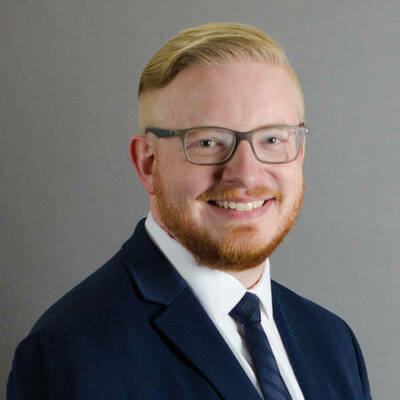Program on IP & Technology Law announces winners of 2020 writing competition

Notre Dame Law School is proud to announce the winners of the Law School’s Program on Intellectual Property & Technology Law Annual Writing Competition.
This year’s first prize paper, Why Heather Was Right: The Legal Implications of Convergence Culture on Modern Copyright Law, was written by rising third-year law student Benjamin Perry. Perry’s paper explored copyright law’s treatment of user-generated content. Taking a distinctly interdisciplinary approach, Perry examined the nexus of convergence culture and copyright law, proposing a fair use exception for user generated content. According to Perry, that exception would recognize fans’ feelings of ownership of the work they’ve created and the extent to which these franchises have become part of their individual and collective identities. “The paper’s embrace of the liminality of copyright and its comparative legal analysis indicated a particular awareness of how copyright reflects culture,” Dr. Felicia Caponigri, Program Director of the Program on IP & Technology Law and a member of the evaluating committee, noted. The topic is also timely, as issues of who owns crowdsourced user-generated content and the difference under copyright law between protected expression and unprotectable ideas are increasingly in the news. Created by the Program on IP & Technology Law to reward the excellent scholarship produced by Notre Dame Law students, the competition is open to student papers on topics related to intellectual property or technology law that are at least 10,000 words in length and were completed in 2019 or 2020. Program faculty evaluate the papers based on their originality of thought, accurate application of law, and the novelty and impact of argument.

“Ben’s excellent paper was broad and creative,” according to Professor Mark McKenna, Faculty Director of the Program on IP & Technology Law, “and it did an excellent job situating user-generated content in the communities in which it is often developed. The paper was also sophisticated in considering the various interests at stake. Even in a strong field, Ben’s paper stood out.” Professor Jodi Clifford, Director of the IP & Entrepreneurship Clinic added, “Ben’s paper was clear, insightful, creative, compelling and timely. His paper went well beyond providing an excellent explanation of the current state of the law. It explored the interplay of the law with participatory culture, media industry goals, and the purpose of copyright. It was outstanding.”
Upon learning that his paper placed first in the competition, Ben Perry shared, "I'm honored and overwhelmed to be chosen as the winner. I came to law school with the intent to write about and study how user-generated content and the law interact and am excited that others found the topic as fascinating as I do. I hope to see and contribute more scholarship on this topic in the future."

Nicole Barba, author of Patentability of 3D Biomaterials
Two papers tied for the second prize, Patentability of 3D Printed Biomaterials by rising third year law student Nicole Barba and Improving the Defend Trade Secrets Act of 2016: Against Preempting State Trade Secret Law by recent 2020 graduate Victoria Hanson. Looking to the purpose of the patent system, Patentability of 3D Printed Biomaterials argued that patent law in fact fails to incentivize disclosures of inventions that are the product of human ingenuity when it does not treat 3D-bioprinted materials as patentable subject matter. Improving the Defend Trade Secrets Act of 2016 argued that the first federal law protecting trade secrets has not met its goals, but that it would be better to amend the Act than to preempt state law. The evaluating committee was particularly struck by both papers’ organization and structure. “These papers were also very strong,” Mark McKenna said, “so strong that the committee didn’t feel it could choose just one of them. We were particularly impressed with the range of papers submitted this year, and the fact that our winning papers covered topics in three different areas of law is a testament to the breadth and depth of our IP student community.” Indeed, according to Jodi Clifford, “It was a pleasure to read such a diverse set of excellent papers and it is a privilege to work with such outstanding students.”
Upon learning that her paper tied for second place Nicole Barba shared her thanks "especially to the faculty members in the Program on IP & Technology Law for supporting me and my classmates as we learn and explore the many facets of intellectual property law." Victoria Hanson shared, “I’m honored and grateful to receive this award. In my paper, I wanted to provide insight into the Defend Trade Secrets Act of 2016 and the continued importance of state law in protecting trade secrets. It's amazing for my passion and hard work to be recognized by the IP community.”